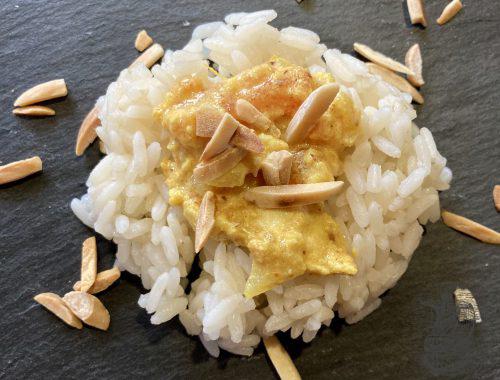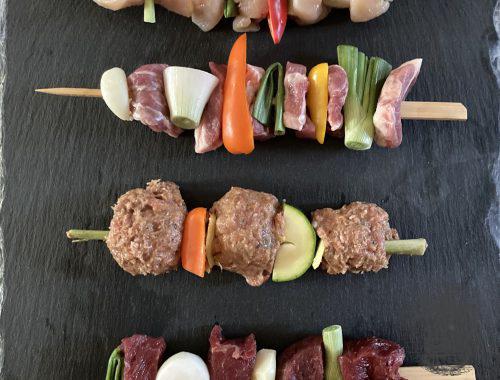
Cooking classes around the world
Have you already taken cooking classes abroad?
If you already know me a little bit, you know that I love to attend cooking classes during my vacations. Today I want to tell you a little bit more about it and maybe inspire you to plan a cooking class for your vacations.
A cooking class is a great opportunity to get into conversation with locals
It brings you closer to the country and its people. I always find it exciting to learn about the food culture in other countries.
For example, desserts can vary a lot – or would you make a dessert with green mung beans and seaweed? I have eaten it in Vietnam, and it didn’t taste bad.
Plus, you’ll meet other tourists who have the same interests.
A visit to the local market is often also part of the trip
There you buy the ingredients for your meal. And of course, there is the possibility to ask questions and get to know unknown food better.
So, in Thailand, our cooking teacher took us to different stalls and gave us this and that to try.
And in Mauritius, the teacher changed the menu without further ado because we were particularly interested in a certain vegetable.
Most of the time you also get to know something about the way of life of the people, also new kitchen utensils (for example a coconut grater) and above all I learned how little kitchen utensils you can use to conjure up a fine meal on the table.

Since I usually travel around the equator on vacation, these cooking classes are of course also very exotic, but that’s the beauty of it.
I have had nothing but good experiences so far.
The cooking courses are organized differently depending on the country
Some have a cooking school, where each participant has a cooking station. With their own cooking stove, where everyone cooks their own portion.
Others simply invite you to their home, where everyone then cooks together on the stove of the house. In Sri Lanka, we even cooked over the fire.
Both options have pros and cons.
Cooking School:
Pro:
- You cook properly yourself
- You can determine the spiciness yourself
- The language is usually not a problem, the courses are held in English. If the cook does not speak English, he has a translator
Cons:
- these courses are more impersonal
In the home of the chef:
Pro:
- It takes place also with only a few participants. In Thailand, Costa Rica, and Mauritius we were even only two
- The date and time are sometimes negotiable
- You get an insight into the way of life and living of the locals
- The course is mostly very personal
Cons:
- you don’t cook everything yourself, at some steps you might be just a spectator
- Sometimes the cook doesn’t speak perfect English, but you learn to cook while watching and food connects anyway
Especially the cooking classes at the chef’s home are not always in the city center, but sometimes the transportation is included in the price.
And by the way, the cleaning and tidying up is taken off your hands everywhere. You can just focus on the beauty and enjoyment.
There are several ways to find a course:
- Internet platforms that offer events
- Internet search: simply enter “cooking course” and the corresponding country
- Directly on site: for example, in the hotel or where you can also book excursions
- Social Media
- Ask me: I link below the cooking courses that I have attended
Here are my experiences:
Sri Lanka:

At the cook’s home. Conveniently, she also rented out rooms and we stayed there. This was our first cooking class abroad and it was perfect. Authentic, personable, super fine, and enjoyable. We cooked with traditional clay dishes on the fire pit and made our own coconut milk.
Vietnam:

In Ho Chi Ming in a professional cooking school, with our own cooking area. Beforehand we went to the market, I learned a lot about the different vegetables.
The menu was very particular, with unknown ingredients like banana flowers, mungo beans in the dessert, and pandan in the rice. In the end, there was a nice recipe booklet and a certificate of participation.
On the ship in Halong Bay: In a beautiful setting with a very special ambiance, I learned -finally- how to roll spring rolls properly. So that at the end the content is in the roll and does not ooze out.


Thailand:

At the cook’s home but with individual cooking stations for each participant. Before we went to the market, where she let us try many things. (Sesame cake, herb sausage, tea).
In her garden, she showed us different herbs and we made the green curry paste ourselves.
Greece:

At the cook’s home, that is, at the mother of a friend. First, we went to her garden and harvested the necessary vegetables. We cooked together on her stove.
We could only barely communicate, but I observed well. In the end, we had a fine meal together, which we ate with her family and friends.
Costa Rica:

At the chef’s home in his kitchen. I learned a lot about coconuts there, how to open them, and what is processed from the coconut.
The dish was from the Caribbean part of Costa Rica. We then ate with the chef and his wife and learned a lot about their way of life while talking. In the end, the cook drove us back to the hotel.
Mauritius:

At the cook’s home, we cooked on her stove. Because she couldn’t speak English very well, even her adult daughter was there to translate.
First, we went to the market to buy the ingredients and because we did not know bitter melons, she bought some and we cooked them.
We booked this course through a website that promotes local business.




